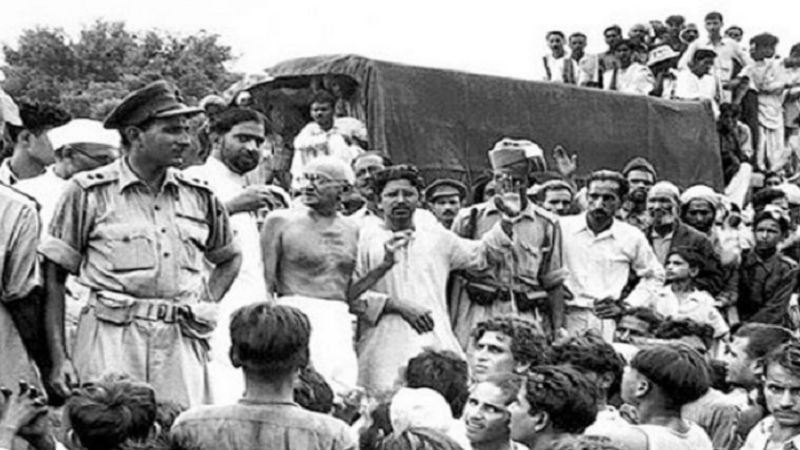EDUCATION
The significance of the discipline of history transcends time and space and when communicated adequately, it can leave a great impact on the mind of the learner. Here is an analytical piece on the critical importance of history and how it can be made meaningful.
Sundaresh D.S | The New Leam

[dropcap]O[/dropcap]n August 24th Krishna Kumar had written an article in The Hindu, on the importance of history in the competitive education system. Kumar argues that history is an important subject in shaping the mind of the young generation. Composing the history syllabus and textbook has become politically controversial in India and countries across the world. A history book can be viewed as a reflection of state power. A child’s mind can be easily impressible, so certain versions of history can help in the political mobilization in the future.
The need to think and act out of the box
Firstly, the problem of teaching history as a subject is that the history teachers often not thoroughly read on the subject themselves and when they do it is a monotonous act. If a teacher is not convinced about the subject, then she cannot arouse curiosity in the subject. Such history teaching would get limited passing exams within the prevalent education system. Secondly, as Kumar points out history is restricted to wars, kings, remembering dates and places. History is about knowing about the struggle and transformation of human civilizations. The teacher’s responsibility is to realize the importance of history. A teacher could adopt interesting exercises such as those like assigning to the student the task of writing the history of her family or discovering through a series of conversations with the elderly, the history of the village. Such attempts make it possible for the teacher to encourage the students to develop an interest in the subject without over burdening them or alienating them with only academic reading.
When a child attempts to write their own family history- the very process can introduce her to ho historians look at and utilise resources, what is considered as a valid evidence and how from fragments of what is available a broader history can be arrived at.The importance of evidence while writing history and the role of interpretation of history and possible politics behind writing textbooks can be taught in a way that is real and not based on rote memorization . The entire process would be become far more meaningful and satisfying if the teacher is interested and understands the importance of history as a subject.
History as a holistic picture of our struggles and success
Secondly, as Kumar argues that some counties have an uncomfortable bond with history becaue it is likely to bring forward their darker parts.The child’s innocent questions would not be answered, for example, America would hesitate to teach about the role of the USA in destroying Hiroshima and Nagasaki in Japan. Similarly, Britain would never teach their inhuman rule over the world especially in India over two centuries. British history students would not be told that London is built at the cost of Indian imperialism. A history student of Britain expressed her surprise at a panel discussion when Shashi Tharoor wrote a book on how India’s wealth had been drained out to England. Perhaps British students are not taught about the colonial expidition and devastation of the colonised people with as much intensity as it is taught in the erstwhile colonied nations like India and South Africa. Indian history, as it is argued by many should be written to cultivate a sense of pride among children rather than imparting a sense of inferiority. History books are necessary to develop a feeling of oneness by telling the stories of our heroes, our ancestors, and their heroic deeds but what is also important I to initiate a discussion the mistakes, the oppressive practices and the evils committed by us so that we learn and never repeat them in the future.
History enables the creation of the sense of identity
Similarly, if a child is aware of great Indian personalities, it would inspire them to continue to contribute to society. After reading history, a child should not be depressed rather the learning of history should give her confidence. A systematic attempt has been made while writing Indian history and it has been seen that either it has cultivated uncritical pride or has generated inferiority. The point of the exercise is to cultivate a sense of balance and enable the student to look beyond both the extremes.
Any student who has read Indian history textbooks may reflect on Indian history as one composed primarily of defeat. As if the nation of India deserved to be ruled, that Indians were uncivilized and thus other populations helped our redemption. On the other hand, the uncritical reading of history may bring about the belief that everything was glorious in our cultural practices. Indian history like histories of all nations in the world is a combination of good and bad points that need to be cultivated holistically.
Further, history teachers have the responsibility to make children realize that textbooks have neither fallen from the sky nor can they be seen as god revealed sacred scriptures. The teacher should encourage students to look critically at the textbooks and encourage multiple interpretations of the available evidence. Students should also be welcomed into the world of politics of textbook writing. So history textbooks have a great role in inspiring the young generation if taught meaningfully or else become a burden upon the students.














